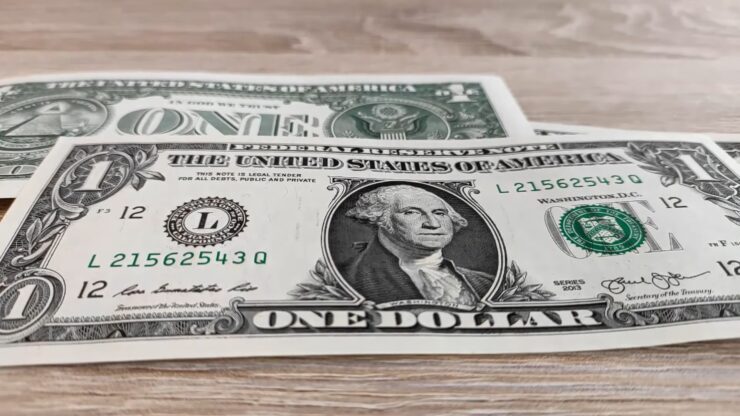The world of billionaires is as fascinating as it is diverse. From tech moguls in the United States to manufacturing magnates in China, the paths to immense wealth are as varied as the countries these billionaires hail from.
As a journalist and creative writer, I’ve always been intrigued by the stories behind these figures, their rise to prominence, and the impact they have on global economies. Let’s delve into the data and narratives of the world’s wealthiest individuals in 2024, using insights from a recent article by Lifestyle Asia India.
The Global Landscape of Billionaires in 2024
In 2024, Forbes’ list showcased a whopping 2,640 billionaires spanning 77 countries and territories. The United States, unsurprisingly, led the pack with 735 billionaires, followed closely by mainland China with 495.
Interestingly, while the total number of billionaires increased by 75 from the previous year, not all countries saw a rise in their billionaires count or their cumulative wealth. For instance, despite having the most billionaires, the US didn’t add a single new billionaire in 2024.
China, too, witnessed a decline from 539 billionaires in 2022 to 495 in 2024.
- Key Takeaways:
- The US and China dominate the billionaire charts.
- Eight of the top ten billionaires globally are Americans.
- The total number of billionaires has seen a net increase, but individual countries have varied trajectories.
United States
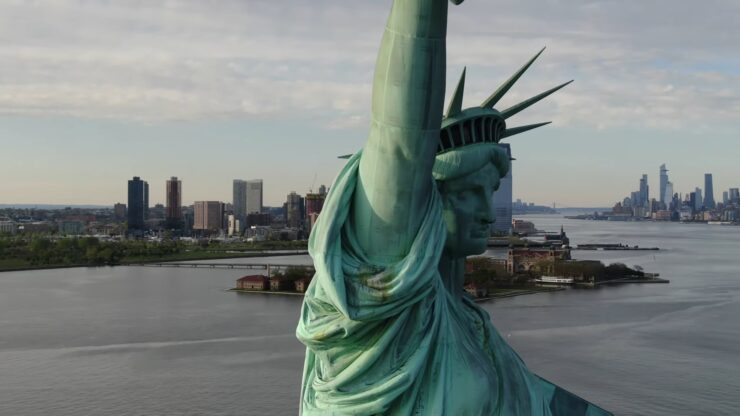
The United States, with its rich history of innovation and entrepreneurship, boasts the highest number of billionaires globally. The nation’s stable political climate, coupled with its openness to global talent, has made it a magnet for the world’s brightest minds.
This is evident in the dominance of Big Tech companies like Amazon, Microsoft, Meta (formerly Facebook), Alphabet (Google), and Apple, all US-based. In fact, 10 of the 15 US billionaires in the top 20 have made their fortunes in the tech industry.
The US’s billionaire landscape isn’t limited to tech. The country also has prominent figures in entertainment and sports, including Rihanna, Kim Kardashian, Jay-Z, Tiger Woods, and LeBron James.
- Top Five US Billionaires:
- Elon Musk: USD 237.2 billion
- Jeff Bezos: USD 154.3 billion
- Larry Ellison: USD 147.9 billion
- Bill Gates: USD 119.3 billion
- Warren Buffet: USD 117.7 billion
China
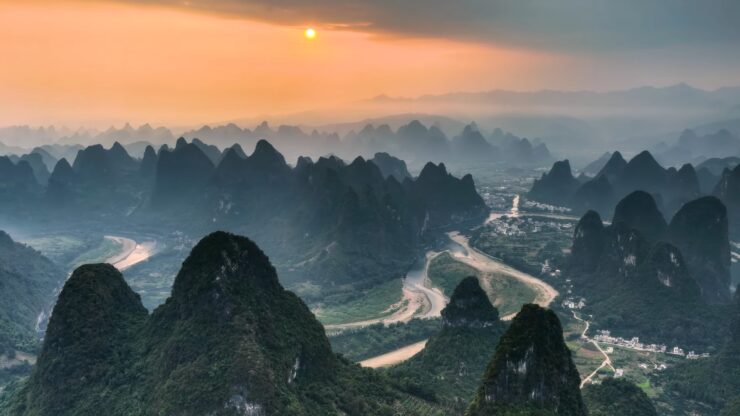
China’s economic transformation, especially since the late 20th century, is nothing short of remarkable. The decision by Deng Xiaoping in 1978 to open China’s economy to foreign investment set the stage for its meteoric rise.
Today, China’s strength lies in manufacturing, with almost every major global manufacturer having a presence there. While the tech industry has its representatives among China’s richest, like Zhang Yiming of TikTok and Ma Huateng of Tencent, many have amassed wealth in diverse sectors like beverages, automobiles, and mining.
- Top Five Chinese Billionaires:
- Zhong Shanshan: USD 66.3 billion
- Zhang Yiming: USD 45 billion
- Ma Huateng: USD 37.6 billion
- William Lei Ding: USD 34.5 billion
- Colin Zheng Huang: USD 31.7 billion
India
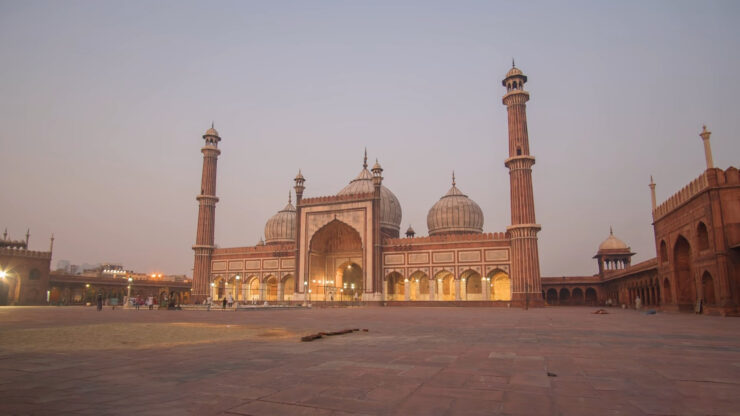
India’s economic journey, especially post the liberalization reforms of 1991, has been noteworthy. The country’s billionaire list features a mix of traditional business families and new-age entrepreneurs.
While Mukesh Ambani, the richest Indian, helms the diversified conglomerate Reliance Industries, the list also features tech entrepreneurs and other industry leaders. It’s essential to note the stark income inequality in India, with the top 1% owning a significant portion of the nation’s wealth.
- Top Five Indian Billionaires:
- Mukesh Ambani: USD 89.7 billion
- Gautam Adani: USD 54.5 billion
- Cyrus Poonawalla: USD 31.1 billion
- Shiv Nadar: USD 25.9 billion
- Savitri Jindal & Family: USD 20.4 billion
Germany
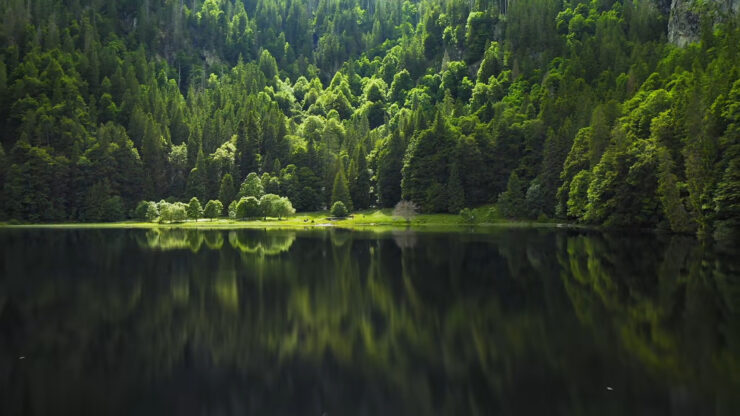
Germany, known for its engineering prowess and industrial might, boasts billionaires who have capitalized on these strengths. The country’s focus on precision engineering, automotive excellence, and chemical industries has given rise to magnates like the Quandt family, major shareholders in BMW, and Stefan Quandt, who has a significant stake in the same company.
The country also has representatives from the fashion industry, like the family behind the Aldi supermarket chain, showcasing Germany’s diverse economic landscape.
- Top Five German Billionaires:
- Beate Heister & Karl Albrecht Jr.: USD 39.2 billion
- Dieter Schwarz: USD 36.9 billion
- Stefan Quandt: USD 35.6 billion
- Susanne Klatten: USD 34.3 billion
- Klaus-Michael Kuehne: USD 27.1 billion
Russia

Russia, a nation known for its vast natural resources and geopolitical significance, and its one of the richest in Europe has seen an interesting trend in its billionaire count. Despite facing Western sanctions following its actions in Ukraine, the country witnessed an increase in its billionaire numbers.
From 83 billionaires in 2022, the count surged by 22, reaching a total of 105 by 2024. Their combined net worth?
A staggering USD 474 billion. This growth, as Forbes highlights, can be attributed to a global surge in commodity prices, largely influenced by the aforementioned geopolitical events and subsequent sanctions.
This has particularly benefited Russian businesses, with Andrey Melnichenko of EuroChem Group standing out. His net worth more than doubled within a year, jumping from USD 11.1 billion to USD 25.2 billion, making him Russia’s wealthiest individual.
The story of Russian billionaires, often referred to as oligarchs due to their influence and proximity to political power, goes back to the post-Soviet era. These individuals gained control over significant sectors like metals and oil.
Yet, while their wealth grew, the general populace didn’t see a proportional improvement in living standards. This has led to pronounced income inequality, with the top 1% of Russia’s wealthiest households earning over 20% of the national income as of 2021.
- Top Five Russian Billionaires:
- Andrey Melnichenko & family: USD 24.7 billion
- Vladimir Potanin: USD 23.7 billion
- Vladimir Lisin: USD 22.1 billion
- Leonid Mikhelson & family: USD 21.6 billion
- Alexey Mordashov & family: USD 20.7 billion
Hong Kong
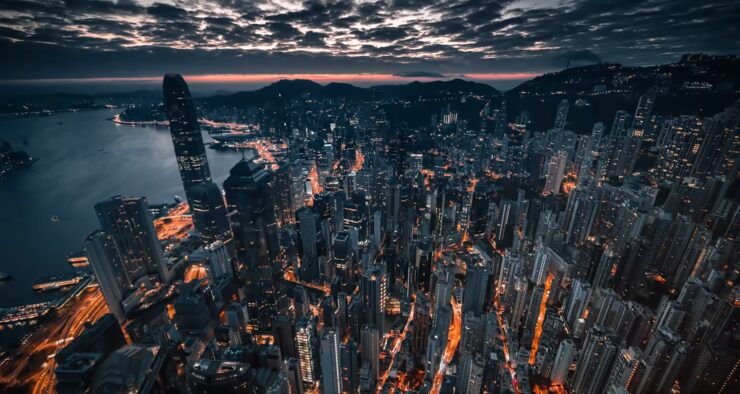
Hong Kong, despite its compact size, stands as a testament to economic resilience and prosperity. Post the Japanese occupation which ended in 1945, the region underwent a remarkable transformation.
Within a decade, it became the crown jewel of British territories in the Far East. The real economic acceleration, however, occurred between 1962 and 1970.
This period saw the rise of real estate ventures, engineering feats, and the establishment of electronic, optical, and financial giants. Many of today’s Hong Kong billionaires owe their success to this boom.
Notable among them are infrastructure legends Li Ka-shing, Lee Shau Kee, and Lui Che Woo.
- Top Five Hong Kong Billionaires:
- Li Ka-Shing: USD 38.4 billion
- Robin Zeng: USD 33.9 billion
- Lee Shau Kee: USD 27.8 billion
- Peter Woo: USD 15.6 billion
- Lui Che Woo: USD 15.2 billion
Italy

Italy, a European economic stalwart with a GDP of USD 2.01 trillion in 2022, has seen its billionaire count rise despite economic challenges since 2008. While engineering and metallurgy are its traditional strengths, Italy is globally renowned for its automobile and fashion industries.
Icons like Giorgio Armani and Piero Ferrari are household names, representing the pinnacle of their respective domains. Giovanni Ferrero, Italy’s richest, leads Ferrero Group, the world’s second-largest chocolate maker, known for brands like Nutella and Kinder.
- Top Five Italian Billionaires:
- Giovanni Ferrero: USD 39.9 billion
- Giorgio Armani: USD 12.4 billion
- Sergio Stevanato & family: USD 7.9 billion
- Massimiliana Landini Aleotti & family: USD 7.3 billion
- Piero Ferrari: USD 6.6 billion
Canada

Canada, home to vast landscapes and a diverse economy, boasts billionaires with varied interests. David Thomson, the 3rd Baron Thomson of Fleet, stands out as a noble with significant influence in the media world, leading Thomson Reuters.
His wealth has seen a substantial increase, positioning him as the 22nd richest individual globally in 2024. Another notable figure is Changpeng Zhao, founder and CEO of Binance, the world’s premier cryptocurrency exchange.
His fortune has seen dramatic highs and lows, reflecting the volatile nature of the crypto market.
- Top Five Canadian Billionaires:
- David Thomson & family: USD 57.9 billion
- David Cheriton: USD 11.3 billion
- Anthony von Mandl: USD 10.5 billion
- Changpeng Zhao: USD 10.2 billion
- Jim Pattison: USD 10.1 billion
The United Kingdom
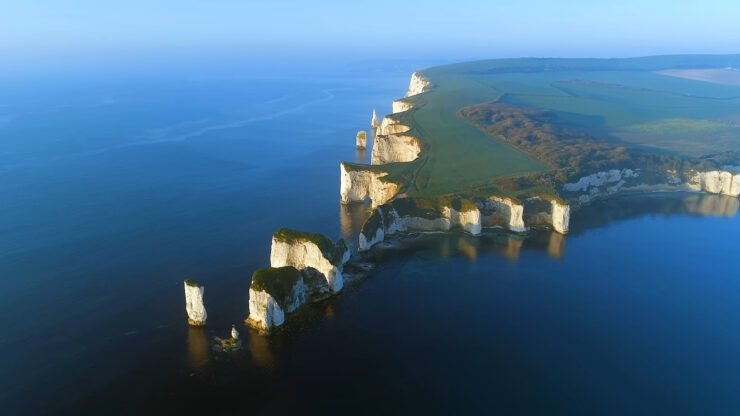
The United Kingdom, with its rich history of monarchies and aristocracies, has seen a shift in its billionaire landscape. While traditional wealth remains, new-age entrepreneurs and business magnates have emerged, reflecting the nation’s evolving economic dynamics.
The UK’s financial sector, particularly London’s role as a global financial hub, has played a significant role in this transformation. Sir James Dyson, known for his innovative vacuum cleaners and other consumer electronics, stands out as a prime example of British entrepreneurial spirit.
Meanwhile, the Hinduja brothers, with their diversified interests spanning from banking to energy, showcase the blend of traditional and modern business acumen.
- Top Five UK Billionaires:
- Sir Leonard Blavatnik: USD 32.3 billion
- Sir James Dyson: USD 29.5 billion
- Hinduja Brothers: USD 28.4 billion
- David and Simon Reuben: USD 21.5 billion
- Roman Abramovich: USD 19.6 billion
Taiwan
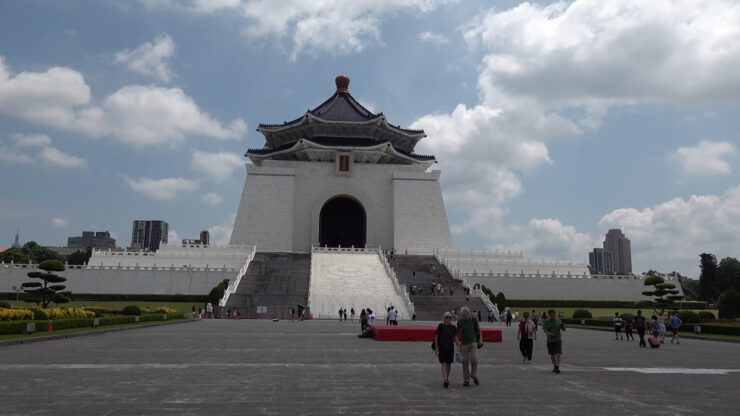
Taiwan, often referred to as the “Silicon Island” due to its prominence in the semiconductor industry, boasts 52 billionaires in 2024. Interestingly, while their count matches that of the UK, there’s been a decline in their combined net worth by USD 15 billion, settling at USD 136 billion.
In contrast, UK billionaires saw an increment in their collective wealth. Taiwan’s economic strength is rooted in its robust service sector.
The nation’s global reputation as a manufacturing powerhouse, particularly in semiconductors, electronics, and computers, cannot be understated. This blend of service and manufacturing sectors has given rise to a diverse group of billionaires, each representing a unique facet of Taiwan’s economic landscape.
For instance, Tsai Eng-meng, the chairman of Want Want China, has made a mark with Chinese-style snacks and beverages. In contrast, Zhang Congyuan, standing as the second-richest in Taiwan, is the brain behind Huali Industrial, a major shoemaker supplying giants like Nike, Puma, UGG, and Vans.
Barry Lam, Taiwan’s wealthiest individual, helms Quanta Computer, the world’s leading notebook computer manufacturer. If you’ve ever used a notebook from brands like Apple, Dell, Sony, or Lenovo, there’s a good chance it was manufactured by Quanta.
The company’s influence doesn’t stop there; they’re also a primary manufacturer of the Apple Watch. Another titan connected to Apple is Hon Hai Precision, the world’s premier electronics contract manufacturer, commonly known as Foxconn.
Founded by Terry Gou, Foxconn is intrinsically linked to the tech world, manufacturing for Apple and owning significant stakes in companies like Sharp and Nokia’s mobile phone business. Lastly, Lin Shu-hong represents Taiwan’s prowess in the petrochemical sector.
As the co-founder and former chairman of Chang Chun Group, he oversees one of Asia’s largest petrochemical conglomerates.
- Top Five Taiwanese Billionaires:
- Barry Lam: USD 10.4 billion
- Zhang Congyuan: USD 8.3 billion
- Terry Gou: USD 7.4 billion
- Lin Shu-hong: USD 7.1 billion
- Tsai Eng-meng: USD 6.4 billion
The Dynamics of Net Worth
One of the most intriguing aspects of the financial world is the rapid fluctuation of an individual’s net worth. For those not deeply entrenched in the intricacies of finance, it can be baffling to see billions of dollars added or subtracted from someone’s wealth overnight.
So, what’s the reason behind these swift changes?
Stock Market Volatility: At the heart of these fluctuations is the stock market. The value of publicly traded companies, and consequently the net worth of their major stakeholders, is intrinsically tied to their stock prices.
When a company’s stock price rises, its market capitalization (or market cap) increases, and vice versa. This is why the fortunes of business magnates like Jeff Bezos are so volatile.
As Amazon’s stock price swings, so does Bezos’ net worth. It’s a direct correlation.
Grasping the Concept of a Trillion Dollars
The term “billionaire” has become relatively common in today’s age, but the concept of a “trillionaire” is still somewhat of a novelty. The sheer magnitude of a trillion dollars is hard for many to fathom.
Visualizing a Trillion: Imagine you had a million dollars. Now, multiply that by a million.
That’s a trillion. It’s an astronomical figure that dwarfs the average net worth of households, which in the U.S. stands at around $120,000.
A trillionaire’s wealth would surpass the combined net worth of over 8 million typical American families. It’s a staggering disparity that highlights the vast wealth concentration at the very top.
Comparing to National Economies: To further illustrate the enormity of a trillion dollars, consider this: there are prosperous nations whose entire annual GDP doesn’t reach a trillion. Countries like Austria, Sweden, and Switzerland, known for their high standards of living and robust economies, have GDPs below this mark.
In fact, out of the 195 countries in the world, only 18 boast a GDP exceeding one trillion dollars.
FAQ
1. How is a billionaire’s net worth calculated?
A billionaire’s net worth is typically calculated by summing up all their assets, including shares in companies, real estate, and other investments, and then subtracting any liabilities or debts they might have.
2. How do geopolitical events affect the net worth of billionaires?
Geopolitical events can have a significant impact on global economies, stock markets, and commodity prices. As seen with Russia’s actions in Ukraine, such events can lead to sanctions and shifts in global trade, which can, in turn, affect the stock prices of companies and the net worth of their major stakeholders.
3. Are there any self-made female billionaires in 2024?
Yes, there are several self-made female billionaires in 2024, although the text does not specify them. Globally, women like Rihanna, Kim Kardashian, and others have made significant strides in various industries, amassing considerable wealth.
4. How does the tech industry compare to other sectors in producing billionaires?
The tech industry, especially in countries like the US and China, has been a significant contributor to the billionaire count. Big Tech companies like Amazon, Microsoft, Meta, Alphabet, and Apple have produced some of the world’s wealthiest individuals.
5. What role do inheritances play in the billionaire count?
While many billionaires are self-made, inheritances also play a role in the billionaire count. Families with long-standing businesses or significant assets often pass down their wealth, leading to multiple generations of billionaires.
6. How do currency fluctuations impact the net worth of billionaires?
Currency fluctuations can have a direct impact on a billionaire’s net worth, especially if their assets are held in multiple currencies or their businesses operate in various countries. A strong currency can increase the global value of its assets, while a weak currency can do the opposite.
7. Are there any organizations or initiatives led by billionaires to address global challenges?
Yes, many billionaires are involved in philanthropic efforts and have established foundations to address global challenges. Initiatives like The Giving Pledge, founded by Bill Gates and Warren Buffet, encourage the world’s wealthiest to commit a significant portion of their wealth to charitable causes.
Why did China see a decline in its billionaire count from 2022 to 2024?
While the text mentions a decline in China’s billionaire count, specific reasons aren’t provided. Factors could include economic policies, stock market performance, global trade dynamics, and other macroeconomic factors.
What sectors are the primary contributors to billionaire wealth in India?
India’s billionaire list is diverse, with wealth coming from traditional business families, tech entrepreneurs, and other industries. Major sectors include IT, telecommunications, petrochemicals, pharmaceuticals, and more.
How have Western sanctions impacted the wealth of Russian billionaires?
Despite Western sanctions following Russia’s actions in Ukraine, Russia saw an increase in its billionaire count. The global surge in commodity prices, influenced by geopolitical events, benefited Russian businesses, leading to significant wealth accumulation for some.
Are there any countries that saw a significant rise in billionaire counts in 2024 compared to previous years?
The text mentions specific numbers for some countries, but a comprehensive comparison with previous years for all countries isn’t provided. Russia notably saw an increase of 22 billionaires from 2022 to 2024.
Final Words
The landscape of billionaires in 2024 offers a fascinating glimpse into the world’s economic dynamics, geopolitical influences, and the sectors driving wealth creation. From tech innovators in Silicon Valley to manufacturing tycoons in China, the paths to immense wealth are as varied as they are intriguing.
As we continue to navigate the complexities of the global economy, the stories of these billionaires serve as both inspiration and a reflection of broader economic trends.

